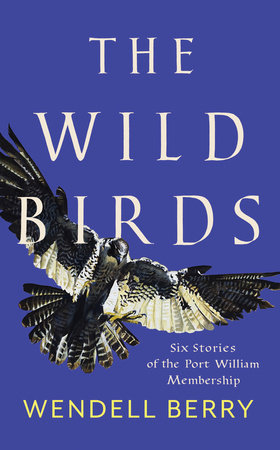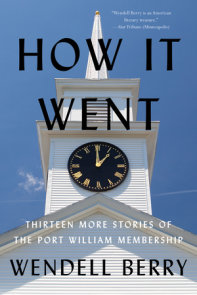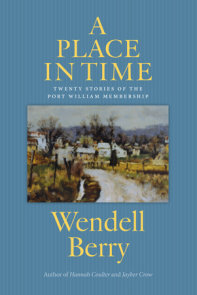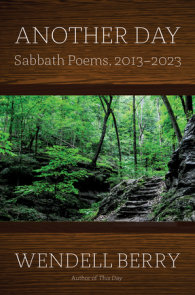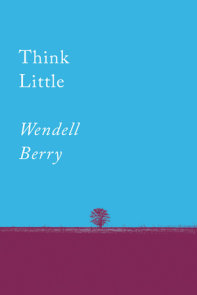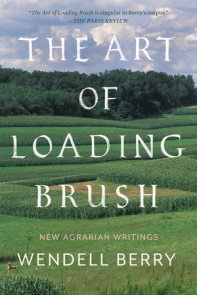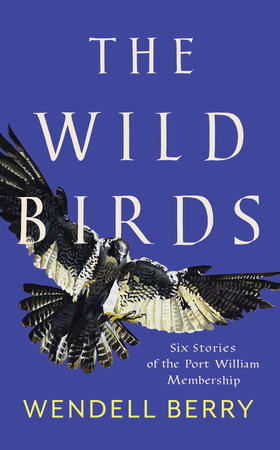

The Wild Birds
By Wendell Berry
By Wendell Berry
By Wendell Berry
By Wendell Berry
Part of Port William
Part of Port William
Category: Suspense & Thriller
Category: Suspense & Thriller

-
$16.95
May 14, 2019 | ISBN 9781640092105
-
May 14, 2019 | ISBN 9781640092112
YOU MAY ALSO LIKE
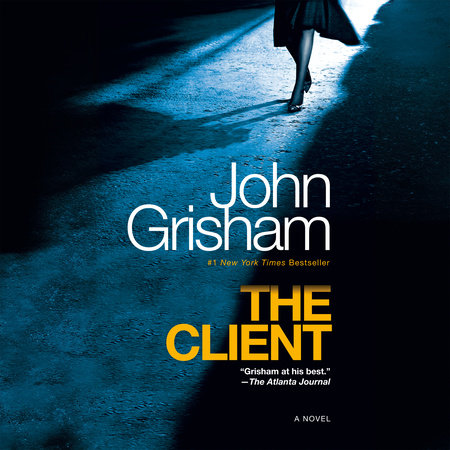
The Client
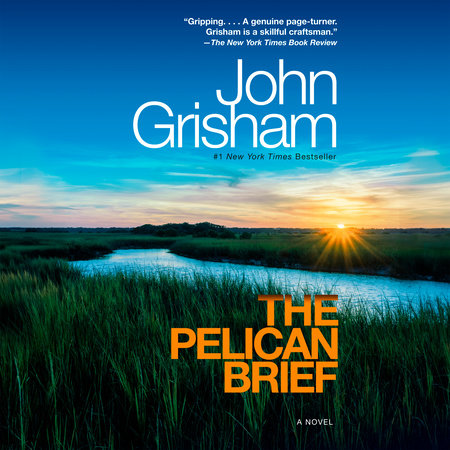
The Pelican Brief

The Good Bride

Classroom of the Elite: Year 2 (Light Novel) Vol. 9.5
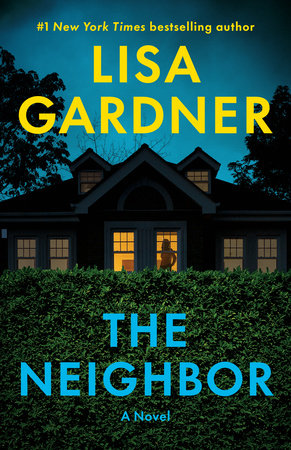
The Neighbor
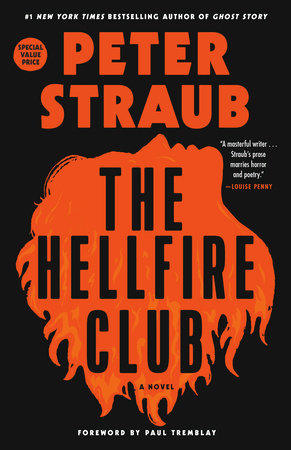
The Hellfire Club
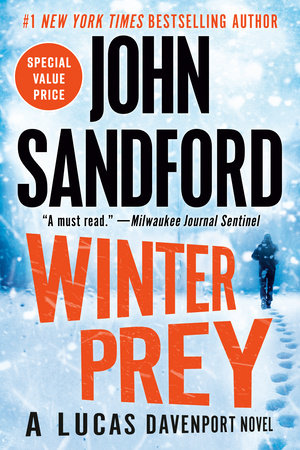
Winter Prey

Stuart Woods’ Golden Hour
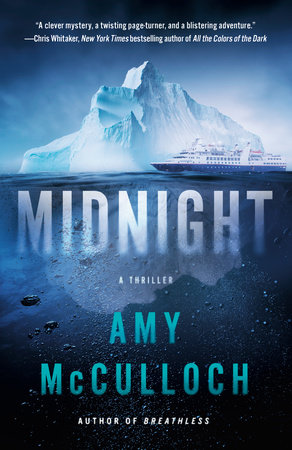
Midnight
Praise
Praise for The Wild Birds
“Berry is a poet of landscapes and legacies: The Wild Birds is a heartfelt exploration of the complex bonds between generations and the ways in which a neighborhood is shaped by its common ties to the land and undone when those connections weaken.” —San Francisco Chronicle
“Berry is a superb writer. His sense of what makes characters tick is extraordinary. His farmers love their land in a powerful bond that moves them forward, generation after generation, with a sense of fulfillments that seems unique in this day of disaffected heroes and writers who turn to black humor when they must deal with eternal verities . . . Short stories don’t get any better than these.” —People
“The Wild Birds is one of those books that remind one of the real purpose and possibilities of the literary art. The good and simple truth to which each of Berry’s stories testifies is that its author observes people carefully, understands them precisely, and cares about them deeply; bombast, pretension, and narcissism are alien to him . . . One has the refreshing impression that Berry doesn’t give a damn what’s in and what’s out; he writes what he wants to write.” —The New Criterion
“Readers would have to look long and hard to find a more polished and engaging collection of stories. Wendell Berry once again has proven himself an original American prose voice.” —San Diego Magazine
“In these stories, Berry traces the history of a loosely affiliated, unofficial, fictional group of dead and living men and women, ‘the membership of the fields’ in Port William, a community in Kentucky’s tobacco country . . . Told with the same intelligence, craft, and reverence that characterize Berry’s novels, essays on agriculture, and poems, these stories have at their core the necessity of human friendship, ‘the good that has been possible in the world . . . the good that is desirable in it.’ Highly recommended.” —Library Journal
“This collection of six interrelated stories, set in the 1930s through the ’70s, portrays life in backcountry Kentucky and its county seat, ‘a dying town in the midst of a wasting country.’ Wheeler Catlett, the central, unifying figure, is a lawyer whose roots and sensibilities exfoliate from the soil of the surrounding farmland. He is its voice and consciousness, its collective memory; his ‘clients,’ who are also his friends, neighbors and kinfolk, provide his cast of characters.” —Publishers Weekly
Praise for Fidelity
“Berry richly evokes Port William’s farmlands and hamlets, and his characters are fiercely individual, yet mutually protective in everything they do. . . . His sentences are exquisitely constructed, suggesting the cyclic rhythms of his agrarian world.” —New York Times Book Review
“Each of these elegant stories spans the twentieth century and reveals the profound interconnectedness of the farmers and their families to one another, to their past and to the landscape they inhabit.” —The San Francisco Chronicle
“Visionary . . . rooted in a deep concern for nature and the land, . . . [these stories are] tough, relentless and clear. In a roundabout way they are confrontational because they ask basic questions about men and women, violence, work and loyalty.” —Hans Ostrom, The Morning News Tribune
“The rarest (and highest) of literary classes consists of that small group of authors who are absolutely inimitable. . . . One of the half–dozen living American authors who belong in this class is Wendell Berry. . . . [this] whole book is vintage Berry.” —Los Angeles Times
“Birth, life, death and the primary institutions of family and community are the axes on which the stories turn. Their plots are as slender as fence posts: a soldier walks home at war’s end; a young woman with a mild fever ponders her first years of marriage; a taciturn farmer takes his moribund father out of a hospital’s intensive care unit so the old man can die with dignity. But Berry invests them with intense feeling, using the plain language of a largely oral culture, building metaphors and similes that have the clear ring of folk wisdom. His ground’s–eye view of events can be chilling, as when he sums up World War II as a great tearing apart. If the stories seem somber in their emphasis on loss, the pains are clearly leavened by the comforts of community and connectedness that a small town can provide. An excellent introduction to one of America’s finest prose writers.” —Publishers Weekly
“In these five interrelated stories, Berry focuses once again on the fictional town of Port William and on characters like Andrew Catlett, the central figure of his novel The Remembering. Each story dramatizes an individual crisis but also emphasizes an abiding sense of community and the simple but solid agrarian values that sustain it. Berry’s tales . . . are engaging and display a quiet but powerful dignity.” —Library Journal
“Berry has employed all the forms he works in—poetry, the essay, fiction short and long—toward an examination of what it means to be placed: what here and elsewhere he calls ‘membership’; American individualism–turned–loneliness seems like the nightmare that puts his eloquence to greatest use . . . Ultimately, the prose of the stories less illustrates the Port William values—forgiveness, dignity, fidelity, community—than provides an indelible, surefooted rhythm for them. Cadenced, eternal–seeming sentences plank everything; there is an enchantment to them . . . Uncommonly satisfying art and vision.” —Kirkus Reviews
Praise for Watch With Me
“Wendell Berry writes with a good husbandman’s care and economy . . . His stories are filled with gentle humor.” —The New York Times Book Review
“Berry is the master of earthy county living seen through the eyes of laconic farmers . . . He makes his stories shine with meaning and warmth.” —Christian Science Monitor
“A small treasure of a book . . . part of a long line that descends from Chaucer to Katherine Mansfield to William Trevor.” —Chicago Tribune
“With the simplicity of folk tales, these stories beautifully evoke a world where people live in relatively harmony with nature, the land and community, and where neighborliness and human scale still matter.” —Publishers Weekly
“This charming collection examines the lives of Tol and Miss Minnie on their Kentucky farm from 1908 to 1941. Despite its universal appeal, this book is distinctly Southern, rich with delightful colloquialisms and the mores and attitudes of rural folk of that time. Some stories are framed . . . underscor[ing] the fact that storytelling and the past are integral to Southern society . . . Every reader deserves the opportunity to meet Tol and Miss Minnie.” —Library Journal
“These seven stories relate incidents in the life of a very good man, Ptolemy—’Tol’—Proudfoot, towering final scion of a line of Kentucky farmers loved for their gentleness, intelligence, and gregariousness and their sense of and love for their place and work in the world . . . Their diction is as chaste as a Bible story’s; they express a biblical reverence for life and community, yet they’re funny, too, and so beautiful.” —Booklist
“The local nature of their canny, comic tonalities, the old–timey subtitle, and the fact that all the action takes place before 1942 might lead browsers to take these Berry stories as merely quaint. That would be a mistake. In fact, like Isaac Bashevis Singer, Berry has been expanding by contraction, husbanding by close focus—in Berry’s case, on the familiar demesne of Port William, Ky . . . The long title story, which closes the collection, is a masterpiece . . . The tale clarifies Berry’s direction, as he moves way beyond nostalgia toward an immersion in other lives that expresses itself as a sense of intimate apartness—a willingness to follow his characters, but not necessarily to change them. Poetry nestled inside prose: startlingly and classically moving.” —Kirkus Reviews
Praise for Nathan Coulter
“An assured depiction of the coming of age of a young man in rural America . . . By any standards an unusual and rewarding writer, Berry is especially recommended to readers struggling with the moral and ethical questions confronting contemporary Americans.” —Newsday
“Spare, elegant and eloquent . . . [Nathan Coulter] is an absolute jewel.” —San Francisco Chronicle
“The Coulter family, like the rest of the people who dwell in this tiny farming community . . . are caught on the wheel of nature, which is at once blindingly beautiful and unwittingly cruel . . . The narrative is stunning, the natural scene is beautifully evoked.” —Los Angeles Times
“Berry’s prose, so carefully tuned you never know it is there, carries us into the very heart of Nathan Coulter and into the land itself.” —San Jose Mercury News
Praise for A Place on Earth
“The revised version of A Place on Earth is a masterpiece – the best thing Wendell Berry has done, a book not to be missed.” —The New York Times Book Review
“This is not a book to read at a sitting. It needs to be savored. Written by a craftsman poet, every word is chosen with great care. Many of Berry’s poems reveal the same fascination with the rhythms and cycles of rural living as A Place on Earth, just as his essays reflect his integrity and common sense.” —Newsday
“Granted, when measured by the yardstick of the contemporary fiction marketplace, A Place on Earth can certainly be described as demanding, but the excellent production offers a feast of the senses for discerning audiences.” —Publishers Weekly (starred review)
Praise for The Memory of Old Jack
“Few novelists treat both their characters and their readers with the kind of respect that Wendell Berry displays in this deeply moving account . . . The Memory of Old Jack is a slab of rich Americana.” —The New York Times Book Review
Praise for Remembering
“In Remembering, Wendell Berry has constructed an almost perfect fiction, a sublime meditation on how irrevocable loss is redeemed through a renewed sense of kinship with the land and the past . . . A beautiful and ennobling book.” —Washington Post
“Berry writes with grace and eloquence of the beauty in handed–down lives.” —Publishers Weekly
“[Andy’s] journey from spiritual darkness to light, from wounded alienation to healed community, conveyed by Berry’s exact and sensitive prose, constitutes an epic poem of American agriculture as much as a short novel. In it, Berry weds more happily than ever before his skills as one of our finest, keenest–eyed, sharpest–eared poets to his moral concerns as our preeminent philosopher of agriculture.” —Booklist
“This short, intensely lyrical novel celebrates ‘the hope and dream of membership’ in a community of friends and relations, all of whom share in each other’s past and in their respect for nature… [Remembering] ends as pure poetry.” —Kirkus
Praise for A World Lost
“Brilliantly detailed characters and subtle social observations distinguish Berry’s unassuming but powerful fifth novel . . . Imbued with the textures, dialect and social mores of backwater Kentucky during WWII, the narrative is pulled along by a chain of revelations about the interior lives of the characters. Berry shows us the psychic costs of misplaced family pride and social rigidity, and yet he also celebrates the benevolent blessing of familial love. This is simple, soul–satisfying storytelling, augmented by understated humor and quiet insight.” —Publishers Weekly
“This time the poet/essayist/novelist turns his attention to nine–year–old Andy Catlett, whose world is turned upside down in 1944, when his beloved Uncle Andrew is murdered. Still haunted by the event years later, Andy researches the seldom–discussed details in an effort to understand Uncle Andrew’s fate. In doing so, he learns a great deal about his uncle, his family, his neighbors, and life in the late 1940s. This gentle tale deals with big issues: grief, love, truth, and loss, and their effects on a young mind trying to grow.” —Library Journal
“Like The Great Gatsby, Berry’s fifth novel is concerned with an extraordinary man’s murder. Fitzgerald’s Nick Carraway rehearses and combs the events that led to the killing, but Berry’s Andy Catlett concentrates on the tragedy’s effects on those who knew and loved the victim, especially his family . . . Andy concludes with the greatest thing he learned: suddenly or gradually, the momentary material world and its people, no matter how cherished, pass away, yet we remain ‘in the company of the immortals with whom [we] have lived here day by day.’ Writing with his customary limpid grace, Berry transforms an elegy into a hope–filled hymn.” —Booklist
“By the prolific poet, novelist, and social critic an elegiac celebration of the end of innocence . . . Berry deftly balances Andy’s investigation into the town’s past with an equally moving portrait of his growing realization not only of the sustaining value of memory but of the manner in which people are shaped in enduring ways by what they love. This is a modest, resonant work, both a sharp portrait of a small farming town nursing its secrets over several decades, and a penetrating celebration of the hold of family on the imagination.” —Kirkus Reviews
Praise for Jayber Crow
“The role of community in the shaping of character is a recurring theme in the work of poet, essayist and novelist Berry, as evidenced once more in this gratifying novel set in Berry’s fictional Port William, Ky . . . Berry’s narrative style is deliberately traditional, and the novel’s pace is measured and leisurely . . . It is to Berry’s credit that a novel so freighted with ideas and ideology manages to project such warmth and luminosity.” —Publishers Weekly
Praise for Hannah Coulter
“Berry renders abstractions like community and home as breathing organisms. . . . Berry’s stories are meant to welcome, to be retold, repeated and handed down to cement the bonds between generations and among neighbors . . . It’s a rare novel that can make one yearn so comprehensively for self–improvement.” —San Francisco Chronicle
“Hannah Coulter is set in the latter half of the past century, but like the best contemporary fiction, it is informed by our present moment.” —Seattle Times
“[F]ew write American English more limpidly than Berry, and he has realized his characters as thoroughly as Faulkner did any of the people of Yoknapatawpha County. But as this telling of a farm woman’s life in her voice continues—and voice it seems more than writing, so spontaneously speechlike are its cadences and the simple accuracy of its diction—it feels ever more poetic . . . “ —Booklist (starred review)
“Beneath the story of ordinary lives lies the work of an extraordinarily wise novelist: as Hannah relates her children’s fate to her own deeply rooted rural background, she weaves landscape and family and history together . . . Her compassion enlivens every page of this small, graceful novel.” —Publishers Weekly (starred review)
“Atmospheric and quietly moving: a tale that manages to avoid outright bathos as it makes its way along the narrow boundary between memoir and nostalgia.” —Kirkus Reviews
Praise for That Distant Land
“What unites [these stories] is a deep humanity, compassion and a sense of recognition that our modern lives unfolded at some point on Earth from stories such as these.” —Seattle Times
“No writer has written of a place better or more completely than Wendell Berry has written of Port William.” —Arkansas Democrat Gazette
“Berry is an American treasure; this collection belongs in all literary fiction collections.” —Library Journal
“Berry’s writing is graceful, poignant and compassionate, and his feel for the inner lives of his quirky rural characters makes for many memorable portraits. A valuable work of literature and historical set piece, this collection vividly captures the fabric of a kind of all–American life.” —Publishers Weekly
Praise for Andy Catlett: Early Travels
“Readers familiar with rural Kentucky novelist (A Place on Earth), poet (A Timbered Choir) and essayist (Another Turn of the Crank) Berry and his vast repertoire will feel right at home in this slim, memoir–like novel narrated by the elderly Andy Catlett.” —Publishers Weekly
Praise for A Place in Time
“Readers of Berry’s other fiction will know some of the narrators—humorous, independent, compassionate Burley Coulter; lifelong but by no means unromantic bachelor Jayber Crow; and quietly magisterial Andy Catlett, the most frequent storyteller and Berry’s surrogate. The incidents range from Andy’s great–great–grandmother’s face–off with a renegade soldier to Burley’s eyewitness account of the unwillingly outrageous courtship of Big Ellis to Andy’s young son Marcie’s reaction to the sudden death of Elton Penn, the finest farmer his father ever knew. The language is warm and cool, as called for; consists mostly of one– and two–syllable words; and constitutes a style as clean and distinctive as Hemingway’s, as perspicacious as Mark Twain’s.” —Booklist (starred review)
“Berry is a maker of beautiful sentences, lightly touched with Southern dialect and soberly concerned with the future of the agrarian spirit.” —Kirkus Reviews
“Berry (Hannah Coulter) returns home to Kentucky in his 10th volume in the Port William Membership series with 20 new interconnected stories of the sleepy farming community and its townsfolk. Told from various perspectives and in cadenced reflections, these quiet and meditative “relics and scraps of memory” speak eloquently of familial and romantic love, slavery and war, loss and time’s slow but inevitable passing, all with a solemnity and candor often found in Faulkner or Twain . . . For longtime fans and those new to the series, this rich slice of evolving Americana is just as poignant and enjoyable as ever.” —Publishers Weekly
21 Books You’ve Been Meaning to Read
Just for joining you’ll get personalized recommendations on your dashboard daily and features only for members.
Find Out More Join Now Sign In






